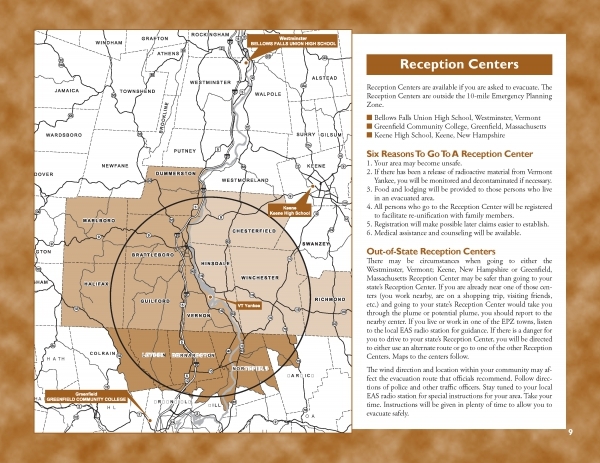We must keep our focus on the public good for the citizens of Vermont, Massachusetts, and New Hampshire as Vermont Yankee is powering down and working toward closure in December.
The emergency planning zone (EPZ) is a critical way to keep that focus sharp.
The nuclear industry makes many claims about the safety and security of its plants, including Vermont Yankee. However, we must acknowledge the potential vulnerability of the fuel pools to terrorism and accidents.
A National Academy of Sciences report in 2005 confirmed the concerns of both state governments and local citizens. This report predated the ongoing Fukushima disaster, which included the melting of fuel in two of its Mark I reactor pools.
* * *
Vermont Yankee is a GE Mark I reactor. GE Mark I and II reactors are the most structurally vulnerable models in the country. VY's fuel pool is filled to capacity (with more than 530 tons) and elevated (seven stories above ground level outside of containment). Millions of curies of high-level waste are stored in this above-ground pool with a metal roof.
These factors pose an unacceptable risk to those who live around the plant.
An attack on the pool that causes the fuel cladding to catch fire could result in a 25,000-square-mile area being uninhabitable for decades. An accident involving the loss of water from the pool could have the same consequences. The National Academy of Sciences report on fuel pool vulnerability states that such a fire could lead to the dispersal of radioactive plumes up to 100 miles.
* * *
Unfortunately, we have no good choices when it comes to nuclear power's toxic waste. We have only better choices over really bad ones. This bind is in itself unacceptable and intolerable. The threat of terrorism only makes it worse. Citizens Awareness Network has worked for years to raise consciousness about fuel pool vulnerability for our tri-state community.
As long as the fuel is in the pool, until all the fuel is in dry-cask storage, it is essential that the emergency planning zone remain in place. A way to pay for protecting our citizens? The Vermont legislature should levy fees on Entergy for each canister stored on site.
